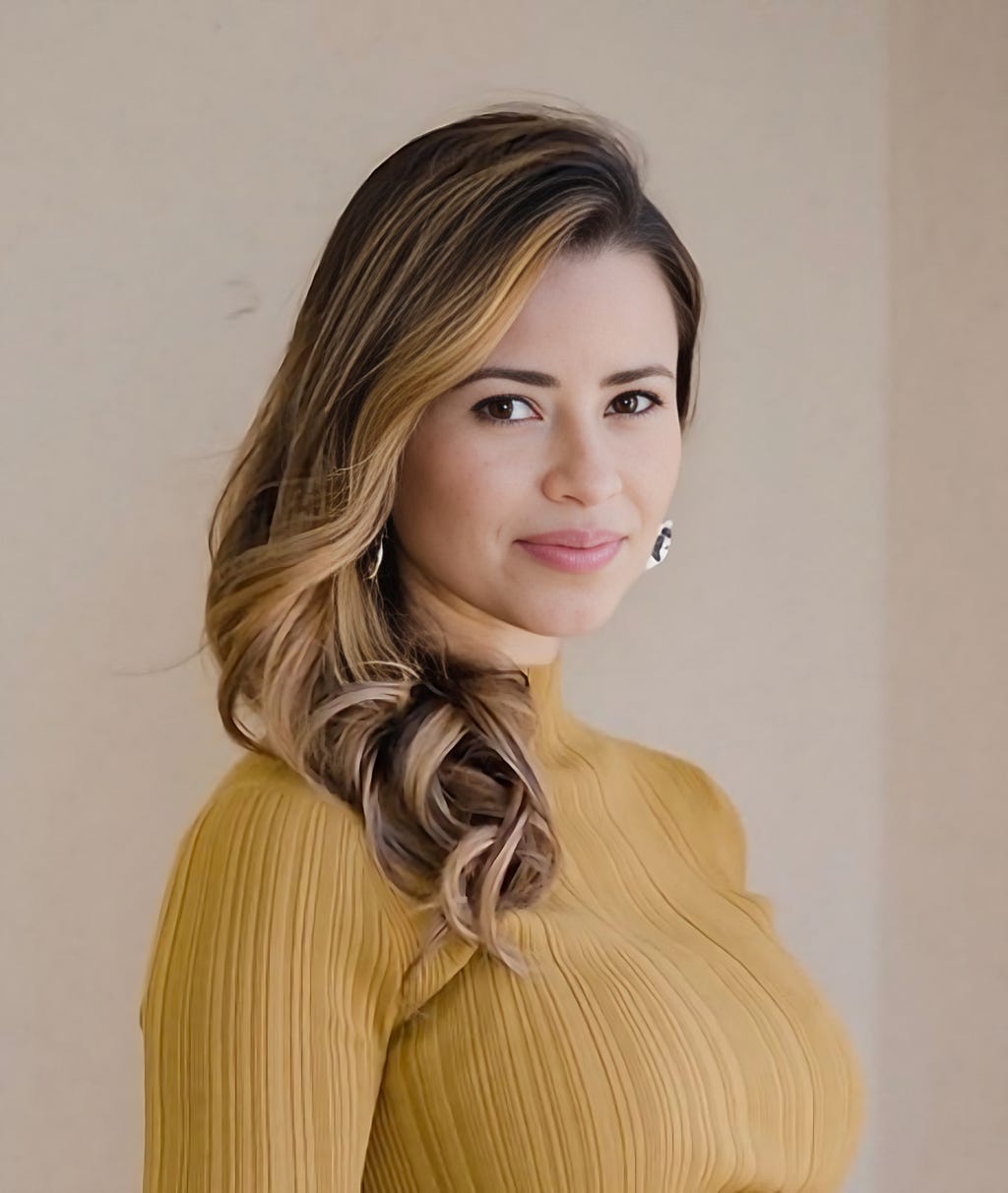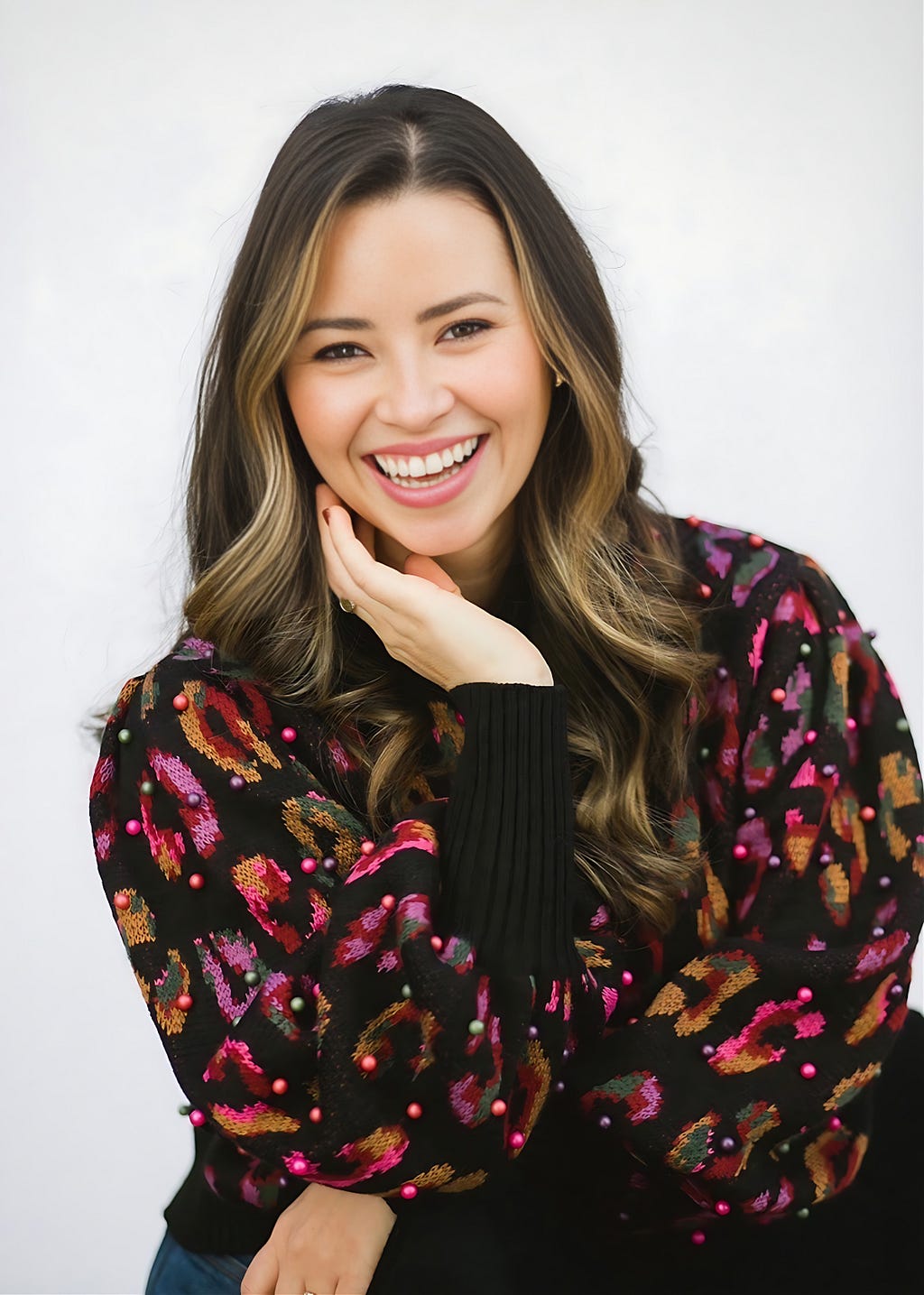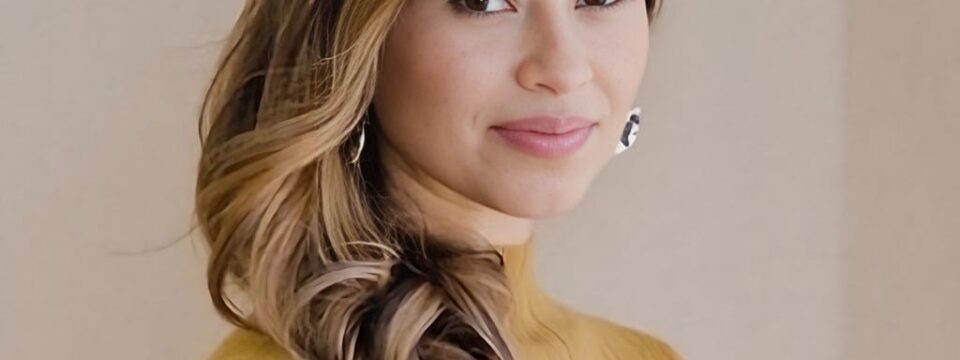Social Impact Heroes: Why & How Lynna Martinez-Khalilian of Fusion Education Group Is Helping To Change Our World

Feedback is a gift. Humble yourself. If you’re open to it, you’ll enter a new level of leadership and self-discovery when you ask and listen to feedback. What was the most “punch in the gut” feedback that leveled me up as a leader because I asked? “Every experience that you’re having, is one that you’re creating.”
As part of my series about “individuals and organizations making an important social impact”, I had the pleasure of interviewing Lynna Martinez-Khalilian of Fusion Education Group.
Lynna Martinez-Khalilian has worked passionately in the fields of education policy, Higher Ed and K-12 school systems. As a graduate of the National Hispana Leadership Institute, she earned a B.A. from the Ohio State University and a dual Masters degree in Education Policy and Administration at the University of Pittsburgh. For the last 11 years, Lynna has led Education for Fusion Education Group — the industry leader in personalized learning.
Thank you so much for joining us in this interview series! Can you tell us a story about what brought you to this specific career path?
I would hide under my mom’s desk in her classroom and pretend I was a teacher. It was my favorite game and my favorite part about visiting her at school. I’m the product of two Puerto Rican parents who despite their own parents only finishing 6th grade, believed that education contributes to a greater world and a greater good. Becoming an educator is a purpose-driven vocation. Early in my life — young enough to hide under a desk and have no one know I was there — I realized it was mine.
It has been said that our mistakes can be our greatest teachers. Can you share a story about the funniest mistake you made when you were first starting? Can you tell us what lesson you learned from that?
Mistakes are absolutely our greatest teachers. At one point in my career, I worked for a school with a very unique name — Halstrom. It was so unique, that every email and every document we put together autocorrected the name of the school to “Hailstorm”. As part of my role, I was responsible for developing company training and was a member of the new school launch team. I worked hard on an eloquent email to a large audience introducing our new school to the community and prospective families in Los Angeles. It was an important email and I was nervous. I hit send and watched the message that gave me seconds to unsend come, and go. Minutes after, I received a call from our CEO and my stomach dropped. I had sent out a letter announcing that a “Hailstorm” was coming. The “Hailstorm” was the best thing that LA had seen in years and it was coming soon. An obvious lesson I learned from that was to slow down and proofread. The less obvious lesson I learned from that was to have grace for myself and to not take myself too seriously. We’re all having a human experience and admitting and responding to a mistake is an act of vulnerability. I sent a follow-up email correcting myself and let everyone know that umbrellas would be passed out at our first open house and I couldn’t wait to see everyone there.
Can you describe how you or your organization is making a significant social impact?
Fusion Academy is changing the scope of education. Historically, the way we’ve educated our children has stayed largely the same. We think of rows of desks when we remember our own middle or high school classrooms. Fusion Academy broke the mold and unlocked the power of a more innovative and personalized instructional model. We reinvented the way we learn and the way we go to school. Instead of a 30:1 classroom — our schools are 1:1. Rather than a traditional brick and mortar — we developed Google-esque micro schools with music studios, yoga classrooms and a homework café. We focus on mastery learning — so if a student doesn’t understand, we won’t move on until they do. Our teachers are trained mentors and believe that when students are seen, heard, and understood — they learn better. Our teachers focus on collaboration, creativity and engagement. We’re the new way to go to school and we’re confident that in our case; different is better.
Can you tell us a story about a particular individual who was impacted or helped by your cause?
For me, the most interesting and fascinating stories are those of transformation and at Fusion, we’re lucky to witness hundreds of success stories. Gavin was a popular student but he had made some poor decisions that cost him his first semester of senior year in high school. One afternoon, he arrived on our campus with his biggest cheerleader by his side, his mom. As I listened, I observed a young man who had lost hope. He felt he had failed. In the classroom, we focused on his immense potential. We created customized lessons that captured his interest and didn’t waste time on what he already knew, we started focusing on the gaps in between. The connection with his teachers helped him to feel inspired and hopeful. Over the next few months, I witnessed a transformation that he chose. It’s unique to meet a student like Gavin, who had lost everything, and see him find a spark so profound that it motivated him to transform from the inside out. I sat in the front row at graduation next to Gavin’s mom. When his name was called, a roar erupted from the audience. There had to have been 100+ family and friends there to watch him walk across the stage. As a tradition, each student selects a teacher to speak about them. Gavin’s teacher said it perfectly; Gavin chose to not let failure define him. He transformed discouragement into fuel. He chose to become a different version of himself and accessed parts of his mind that he hadn’t discovered before. He let himself be seen by our school community. He never quit.
How do you define “Leadership”? Can you explain what you mean or give an example?
For me leadership is the art of helping people become their best and watching them rise. It’s the art of inspiring and influencing someone to become a version of themselves that they otherwise wouldn’t have become without you. In many ways, I’m like a gardener. I plant seeds and tend to the ecosystem. Ask your team about their purpose. Then, listen. As a leader, you have the opportunity to help them connect their work to their purpose and grow.

What are your “5 things I wish someone told me when I first started” and why. Please share a story or example for each.
1. Vulnerability is an essential component to leadership and it takes courage.
I stepped into my current role at the beginning of 2020. Soon after, COVID hit. Then, we faced civil unrest as the Black Lives Matter movement took center stage. Personally, I was pregnant with my daughter during that time and while attending a routine screening solo at 25 weeks due to COVID protocols, I learned she had a hole in her heart and large mass malformation on her lung. I stepped into team huddle the next morning and felt emotion well up inside of me. Typically, a value of mine is to hold space for others at heightened times. That particular day, my team did that for me. We were all grieving and the vulnerability and courage I showed that day, the opportunity I took to share my grief, cemented the values we cherish most as a team and the love we have for each other. It made us stronger.
2. Trust is more important than performance.
The best of the Navy Seals are known as “Seal Team 6” and they’re selected carefully. On a rating scale of performance and trust, the Navy Seals place a high value on trust. Who’s in the foxhole with you? Who has your back when things aren’t going well? We’re all clear on why someone who’s a high performer with high trust would be selected for our team. Same with a low performer with low trust — that person is an obvious no, I wouldn’t want them on my team. But, it’s actually the high performer with low trust who you have to be most aware of. In the end, it’s the person who’s achieving at a high level, but who others don’t trust that is the most toxic. The Navy Seals would rather have a medium performer with high trust than a high performer with low trust. Watch for the best gifted natural leader who is creating an environment for everybody else to succeed. That person may not even be your best performer, but no doubt — you want that person on your team.
3. I call it the “Disney magic” and it’s a lesson in servant leadership and the opportunity that emerges out of a perceived failure.
One of my mentors was an executive at Disney and she once told me about the importance of a “code red” at the park. A code red could never be ignored and was a “stop everything you’re doing” type of situation. Expectations were high and every cast member was highly trained on what to do if you heard it. It wasn’t a safety emergency. It wasn’t an SOS about a ride not working. It wasn’t an alert that they were out of soft serve ice cream. Disney recognized that solving a problem beyond someone’s level of expectation made them a raving fan. It was an opportunity for a cast member to do anything and everything they could do to solve a “red alert” issue and convert a deeply upset guest into the happiest person on earth in the happiest place on earth. In supporting schools and working with so many families, I tell my team that there’s a tremendous opportunity when things go wrong. Let’s all be Disney cast members.
4. Get in the arena and take risks.
This lesson comes from a favorite quote that I share with a late mentor of mine and I didn’t discover it until years into my career: (Paraphrased) “It’s not the critic who counts, it’s not the man who points out how the strong man stumbles, or where the doer of deeds could have done it better. The credit belongs to the person who is actually in the arena, whose face is marred by dust and sweat and blood; who is the best in the end, knows the triumph of high achievement and at worst, if he fails, he fails daring greatly.” Theodore Roosevelt
5. Feedback is a gift.
Humble yourself. If you’re open to it, you’ll enter a new level of leadership and self-discovery when you ask and listen to feedback. What was the most “punch in the gut” feedback that leveled me up as a leader because I asked? “Every experience that you’re having, is one that you’re creating.”
Can you please give us your favorite “Life Lesson Quote”? Can you share how that was relevant to you in your life?
I was working at Carnegie Mellon when Professor Randy Pausch gave his “Last Lecture.” He was dying of pancreatic cancer at the time and the lecture was a presentation of life lessons and his farewell. In that presentation he quoted; “The brick walls are there for a reason. The brick walls are not there to keep us out. The brick walls are there to give us a chance to show how badly we want something. Because the brick walls are there to stop the people who don’t want it badly enough. They’re there to stop the other people.”
The quote challenged me to think about who I want to be and who I want to become when things are hard and when things aren’t going my way. It’s made me really question what I want most in life — both personally and professionally.
Is there a person in the world, or in the US with whom you would like to have a private breakfast or lunch with, and why? He or she might just see this, especially if we tag them. 🙂
I would love to sit down with Paulo Coelho who is the author of my favorite book, The Alchemist. The Alchemist is about a young shepherd who journeys to follow his dream. On his journey, he meets several people who provide life lessons along the way. The shepherd, Santiago learns about risk taking. He’s challenged to really discover his purpose and face fears that might lead him to fall off his destined path. He invites love into his life. He meets people who question and challenge his direction. The story reveals the importance of the people you meet along your path and the role they play in shaping who you become. His hardships reveal the true wants and needs of his heart. If I met Paulo, first I would let him know how the Alchemist story has shaped my life and secondly, I would ask him how his life shaped this story.
Are there three things the community/society/politicians can do to help you address the root of the problem you are trying to solve?
- Schools across the country are trying to incorporate more 1 to 1 time into their school days. They’re seeing the same convicting research that led us to design our entire school around 1:1. Let’s support individualized and personalized learning.
- Fusion is not attempting to replace traditional schooling. We’re serving students currently underserved by traditional schools on all points of the academic bell curve. We believe that a firm partnership with both public and private schools will collectively help us serve our students better.
- Advocate for the teaching profession as the most critical and influential role in our society. At Fusion, our teachers can flex their passions for connection and creativity and I hope that’s the case for teachers at every institution across the world.
You are a person of enormous influence. If you could inspire a movement that would bring the most amount of good to the most amount of people, what would that be? You never know what your idea can trigger. 🙂
I feel really lucky to inspire a movement that I work towards every day which is the power of personalized learning. We spark curiosity, foster critical thinking, build character and develop interpersonal skills. We have the unique opportunity to guide our students in developing their passions and their values. We create a space for them to feel known. We create opportunities to build awareness and we fulfill a basic need that has the potential to impact their entire life. To me, it’s the most inspirational movement in the world.
How can our readers further follow your work online?
Resources For Students, Parents & Teachers | Fusion Academy
This was very meaningful, thank you so much. We wish you only continued success in your great work!
Social Impact Heroes: Why & How Lynna Martinez-Khalilian of Fusion Education Group Is Helping To… was originally published in Authority Magazine on Medium, where people are continuing the conversation by highlighting and responding to this story.
